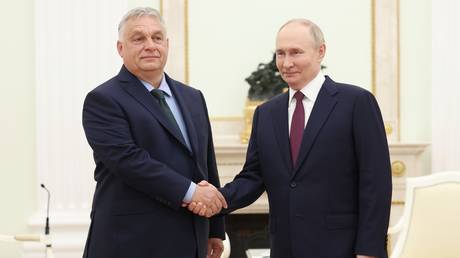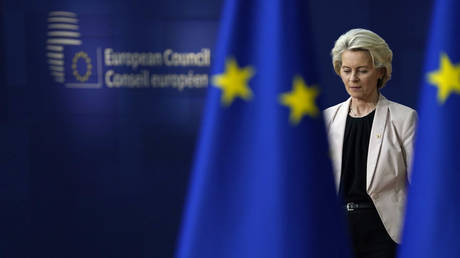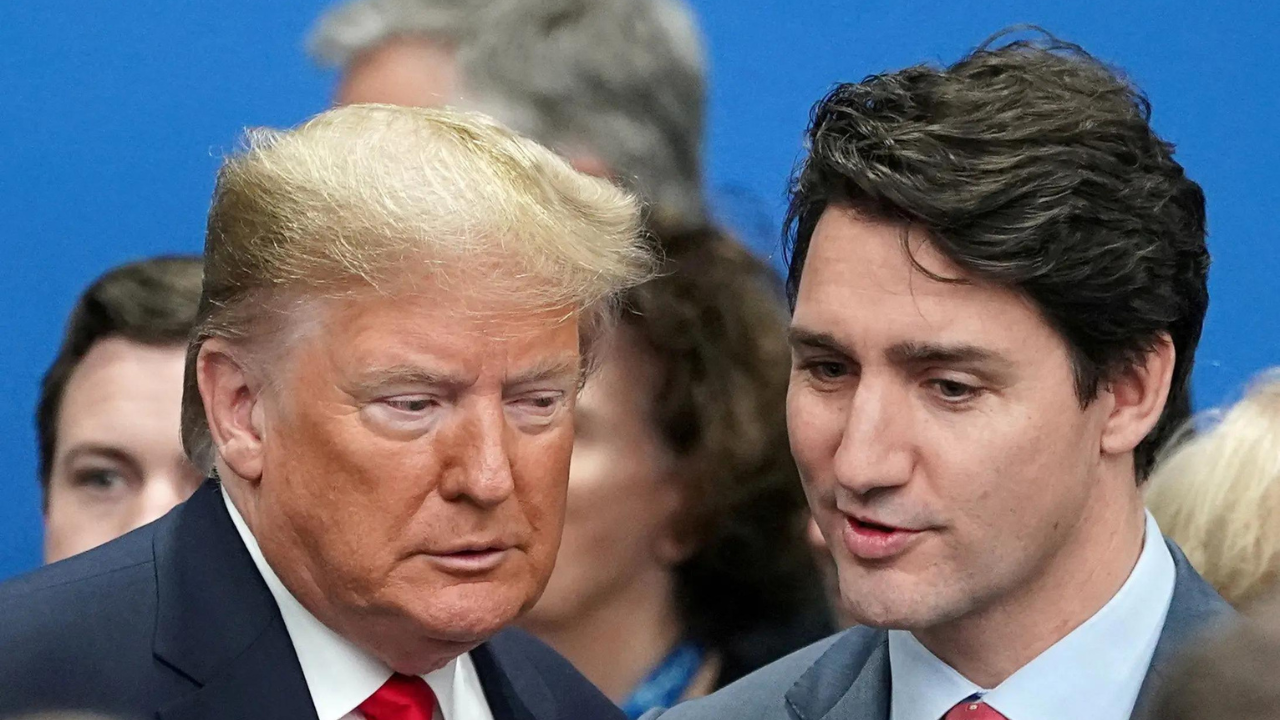ARTICLE AD BOX
With the Washinton and Brussels establishment apparently only interested in more bloodshed, someone has to speak sense
One of the greatest farces of these modern times is that those who scream the loudest about democracy and human rights are the very same people who violate international norms at every opportunity.
In the June issue of The New Republic, a left-leaning US political journal, a scowling Donald Trump was featured on the cover sporting a Hitler moustache above a caption that read: “American fascism, what it would look like.”
“We chose the cover image, based on a well-known 1932 Hitler campaign poster, for a precise reason: that anyone transported back to 1932 Germany could very, very easily have explained away Herr Hitler’s excesses and been persuaded that his critics were going overboard,” the editors explained in a post on X (formerly Twitter). “After all, [Hitler] spent 1932 campaigning, negotiating, doing interviews – being a mostly normal politician. But he and his people vowed all along that they would use the tools of democracy to destroy it, and it was only after he was given power that Germany saw his movement’s full face.”
We chose the cover image, based on a well-known 1932 Hitler campaign poster, for a precise reason: that anyone transported back to 1932 Germany could very, very easily have explained away Herr Hitler’s excesses and been persuaded that his critics were going overboard. After all,… pic.twitter.com/x79Rkh86O1
— The New Republic (@newrepublic) July 7, 2024There’s just one problem with the journal’s nervous handwringing: Trump has already served a four-year term as US leader and there was no visible sign of fascist goosestepping down Main Street during that period. In fact, just the opposite is true. While Adolf Hitler invaded Poland on September 1, 1939, thus triggering World War II, Trump went down in the history books as the first American commander-in-chief in modern times to avoid a military conflict. Now on the campaign trail for the second time, with the insatiable defense industry licking its chops for more profits, the Republican frontrunner has declared he would end the Ukraine-Russia conflict in 24 hours if reelected.
When it is considered that ‘democracy’ today primarily works on behalf of the military industrial complex and other associated business interests, it is easier to understand how Trump is described in the corporate-owned media as an existential threat to the American republic. Peace is the last thing on Washington’s mind, and Russia understands that better than any country.
Read more Orban’s surprise visit to Moscow sparks fury in Brussels: Key takeaways from Hungarian PM’s ‘peace mission’
Orban’s surprise visit to Moscow sparks fury in Brussels: Key takeaways from Hungarian PM’s ‘peace mission’
Back in 2008, the “dictator” Vladimir Putin delivered his now-famous speech at the Munich Security Conference where he warned his Western colleagues on the dangers of military expansion.
“NATO expansion… represents a serious provocation that reduces the level of mutual trust. And we have the right to ask: against whom is this expansion intended? And what happened to the assurances our Western partners made after the dissolution of the Warsaw Pact? Where are those declarations today? No one even remembers them.”
Despite Putin’s explicit warning, NATO went on to add an additional six members to the alliance, bringing the total number to 32, with Ukraine, ignoring Moscow’s major red line, scheming to be number 33. For anybody who asserts this is only a “defense alliance” would do well to consider what America’s response would be if all of Latin America and the border state of Mexico were joining a military alliance led by Moscow. Needless to say, we would be knee-deep in bloodshed by now. Yet Russia is supposed to accept an endless military incursion smack up against its border.
This was certainly not the last time Russia attempted to broker a peace deal with Washington. Almost eight years after the 2014 Maidan Revolution, and months before Moscow kicked off its special military operation in Ukraine, the Kremlin released its plan for peace on the continent. Among other things, the draft treaty called for the US and Russia to refrain from deploying troops in regions where they could be perceived as a threat to each other’s national security, as well as a ban on sending their troops and military hardware into areas where they could strike each other’s territory. The treaty was also designed to ban the deployment of intermediate-range missiles in Europe. Had the Western powers consented to the plan – it barely made headlines in the NATO countries – it’s not difficult to imagine decades of peace between east and west, the very last thing that Washington wants.
Read more Why EU voters are rebelling against the establishment
Why EU voters are rebelling against the establishment
Instead, the US and its European puppets placed Russia in an impossible position with regards to the ongoing militarization and Nazification of Ukraine, forcing it to respond as any other country concerned about its national security would.
This leads us to the West’s third favorite bogeyman, Hungarian Prime Minister Viktor Orban, who has dared to declare that his country is predominantly Christian and conservative and has every right to stay that way. Orban, whose country now holds the rotating EU Council presidency, went on a peace-making tour with stops in Moscow, Kiev, Beijing, and Washington (where he ruffled more than one hawk’s feathers by visiting Trump at Mar-a-Lago instead of Biden in DC). The frustration on the part of Brussels as it watched the Hungarian “tyrant” speak out in favor of reducing weapons sales was laughable if not downright pathetic.
“Hungary has presented the trips as a ‘peace mission’ to help negotiate a ceasefire for the war in Ukraine. Orban may consider himself as one of the few who can speak to both sides – but in reality he has no mandate to do so,” wrote Armida van Rij, a senior research fellow at Chatham House, a European think tank. The question remains, however, who will speak out on behalf of peace if not Trump, Putin, and Orban? The answer thus far is nobody.
While there are certainly other statesmen besides Trump, Putin, and Orban on the international stage who can make the case for peace, time is running out to hear those critical voices.
.png)
 4 months ago
2
4 months ago
2








 English (US)
English (US)